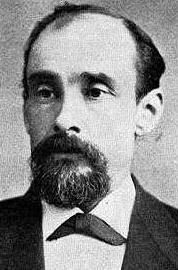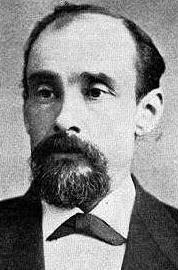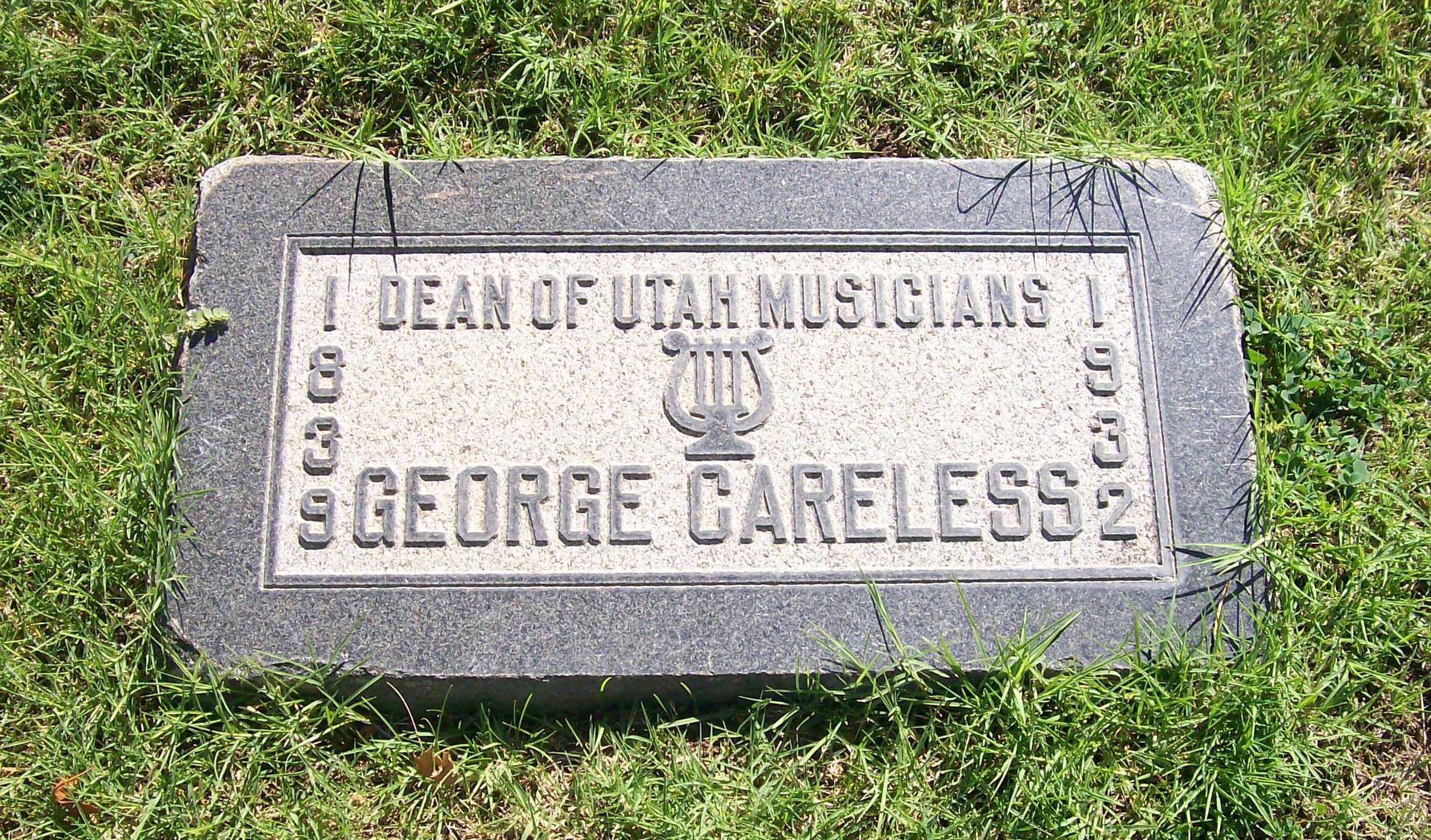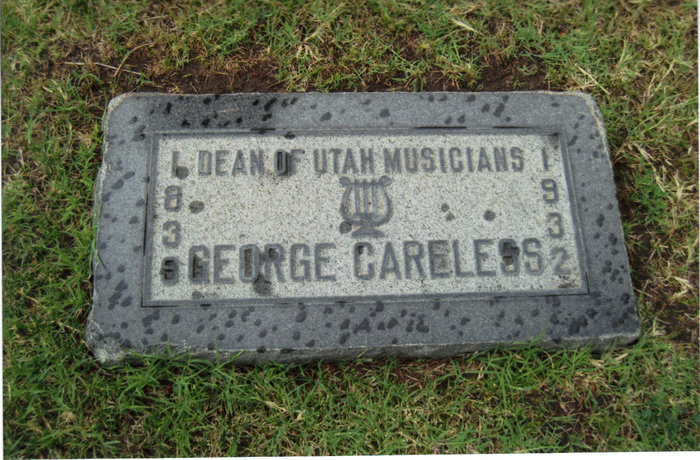Professor George Edward Percy Careless was a pioneer of 1864. He came from London where he had studied under the best music masters, afterwards playing with the great instrumentalists in his native land. In 1865 Professor Careless took the leadership of the Salt Lake Theatre orchestra and soon after was appointed Tabernacle choir leader which position he held for fourteen years. He brought the best compositions to his singers, he trained them well, so his choir was soon recognized for its wonderful concerts, operas and sacred music. Perhaps the crowning event in the musical history of Utah up to 1875 was the performance by the choir of "The Messiah" in June, 1875. Professor Careless was engaged as the conductor of the Handel and Haydn society, which afterwards changed its name to the Philharmonic society. An invitation was extended to the leading musicians of the city to meet in the old Fourteenth Ward meeting house to "Take into consideration the desirability of giving a performance of Handel's great oratorio, "The Messiah." The performance was given in the Salt Lake Theatre by two hundred performers and a complete orchestra, all trained by the gracious master musician, Professor Careless. The Salt Lake Herald published the following story:
"Taking the orchestra as a whole, and laboring under the difficulties already described, the effect and result was simply a marvel of excellence, especially with the first violin, whose singing tones so nearly approached the vox humana on several occasions as to defy all recognition of which was the voice and which was the violin. Mr. Kennicott's organ accompaniment was charmingly delicate and yet supporting. Of the solo singers it is difficult to do justice to, and not praise in the very highest manner one and all, though we will be pardoned if we make particular mention of Mrs. Haydon, Mrs. Careless and Miss Haydon among the ladies, and Mr. Williams, Mr. Black and Mr. Hollister among the gentlemen .... We have already called attention to the disadvantage under which the solo singers labor, but with all these, Mrs. Careless's young, fresh voice seemed to defy all difficulties, coming forth with its rich timbre bell-like and sympathetic. If angels had human voices, surely hers would suggest heavenly music indeed. Fine, however, as the solo singing was, we must confess that the choruses were the great achievement of the whole entertainment."
The presentation of "The Messiah" in that early period of colonization was a real musical triumph and marked the beginning when Salt Lake City became known as one of the pre-eminent cities in the United States for oratorio music. Many other brilliant successes followed during the years Professor Careless led the choir. His wife, Lavinnia, became known as Utah's loveliest singer, but in July, 1885, Mrs. Careless passed away, mourned by every music lover in the West.
Soon afterwards, Professor Careless resigned the conductorship of the Philharmonic Society. A letter was written to the Boston Conservatory of Music asking for a conductor. Professor T. Radcliffe came here to take this position. He was acknowledged as one of the best piano teachers in the West, so he resigned his position as leader of the musical society and devoted all his time to teaching. — Ebenezer Beesley.
Married to Lavina Triplett in England and later to Jane Davis in 1888 in Salt Lake City. He was the first conductor of the Mormon Tabernacle Choir.
Professor George Edward Percy Careless was a pioneer of 1864. He came from London where he had studied under the best music masters, afterwards playing with the great instrumentalists in his native land. In 1865 Professor Careless took the leadership of the Salt Lake Theatre orchestra and soon after was appointed Tabernacle choir leader which position he held for fourteen years. He brought the best compositions to his singers, he trained them well, so his choir was soon recognized for its wonderful concerts, operas and sacred music. Perhaps the crowning event in the musical history of Utah up to 1875 was the performance by the choir of "The Messiah" in June, 1875. Professor Careless was engaged as the conductor of the Handel and Haydn society, which afterwards changed its name to the Philharmonic society. An invitation was extended to the leading musicians of the city to meet in the old Fourteenth Ward meeting house to "Take into consideration the desirability of giving a performance of Handel's great oratorio, "The Messiah." The performance was given in the Salt Lake Theatre by two hundred performers and a complete orchestra, all trained by the gracious master musician, Professor Careless. The Salt Lake Herald published the following story:
"Taking the orchestra as a whole, and laboring under the difficulties already described, the effect and result was simply a marvel of excellence, especially with the first violin, whose singing tones so nearly approached the vox humana on several occasions as to defy all recognition of which was the voice and which was the violin. Mr. Kennicott's organ accompaniment was charmingly delicate and yet supporting. Of the solo singers it is difficult to do justice to, and not praise in the very highest manner one and all, though we will be pardoned if we make particular mention of Mrs. Haydon, Mrs. Careless and Miss Haydon among the ladies, and Mr. Williams, Mr. Black and Mr. Hollister among the gentlemen .... We have already called attention to the disadvantage under which the solo singers labor, but with all these, Mrs. Careless's young, fresh voice seemed to defy all difficulties, coming forth with its rich timbre bell-like and sympathetic. If angels had human voices, surely hers would suggest heavenly music indeed. Fine, however, as the solo singing was, we must confess that the choruses were the great achievement of the whole entertainment."
The presentation of "The Messiah" in that early period of colonization was a real musical triumph and marked the beginning when Salt Lake City became known as one of the pre-eminent cities in the United States for oratorio music. Many other brilliant successes followed during the years Professor Careless led the choir. His wife, Lavinnia, became known as Utah's loveliest singer, but in July, 1885, Mrs. Careless passed away, mourned by every music lover in the West.
Soon afterwards, Professor Careless resigned the conductorship of the Philharmonic Society. A letter was written to the Boston Conservatory of Music asking for a conductor. Professor T. Radcliffe came here to take this position. He was acknowledged as one of the best piano teachers in the West, so he resigned his position as leader of the musical society and devoted all his time to teaching. — Ebenezer Beesley.
Married to Lavina Triplett in England and later to Jane Davis in 1888 in Salt Lake City. He was the first conductor of the Mormon Tabernacle Choir.
Family Members
Sponsored by Ancestry
Advertisement
Records on Ancestry
Advertisement









